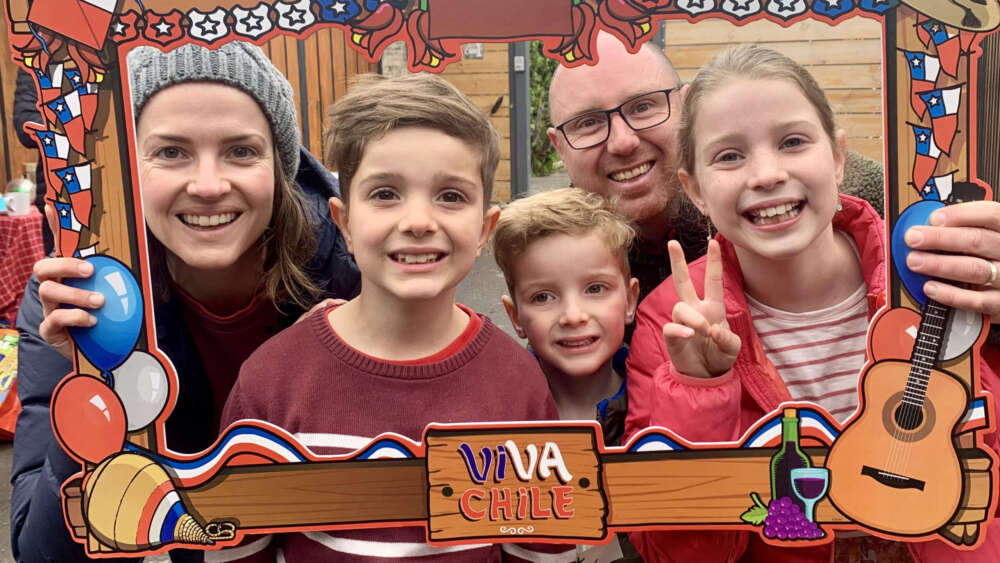Chris and Stef Overhall are making Jesus known by serving in Santiago, Chile, with the Church Missionary Society.
In 2018 Stef and I, along with our three children, touched down in Santiago, Chile. There are many moments, events and people that God used over many years to bring us to that point. Before serving in Chile, we had been happily serving in church ministry in Sydney, Australia. We loved being involved in God’s work in the lives of God’s people.
But our hearts were stirred when some link missionaries visited our church at the time, Jannali Anglican Church. They spoke about what God was doing in the Spanish-speaking world through the ministry of MOCLAM (the Spanish translation of the Moore College Preliminary Theological Certificate course). Their words caused us to think and pray intently about leaving the comforts of Australia to go to a Spanish-speaking context to train God’s people to read and understand his word. We landed in Chile with no notable Spanish skills, three kids and 11 suitcases (two full of English books for the kids).
As CMS missionaries serving the gospel of the Lord Jesus in Latin America, we are involved in theological education, church leadership and student ministry. In these various mission fields, our key goal is to train and equip God’s people to read his word and respond in faith. Chris is involved in teaching MOCLAM courses, serving as part of the pastoral team in our church, and teaching students and staff within GBU (IFES ministry in Chile). We love serving in Chile alongside our Chilean brothers and sisters.
It’s a real buzz to see God open people’s eyes to the big picture of the Bible.
Recently, whilst teaching at a GBU camp, Chris could see God’s work in and among the university students of Chile. He was teaching a Bible overview workshop at the national camp with Chilean students from across the country. This workshop has the goal of helping students see how from Genesis to Revelation, we encounter the same God working to fulfil his plans that centre on the person and work of Jesus Christ.
It was a real delight to see students’ eyes opened to the big unifying theme of God’s kingdom as revealed throughout the Bible. The goal is to help students see this big sweeping arc of the Bible so they can read each detail in the context of the whole.
One female student had a real ‘aha’ moment as the workshop progressed. She had not quite understood how the Old Testament and the New Testament fit together, and as she spoke with Chris and the other students in the workshop, there was a clear moment where she came to understand something new about the dynamic of promise and fulfilment in God’s purposes.
It’s a real buzz to see God open people’s eyes to the big picture of the Bible. We pray that students in GBU would continue to grow in understanding the Scriptures, deepen in worship and trusting God at his word and also in sharing God’s word in the context of the university campus.
We’re teaching the course and praying that God raises up Spanish speakers to develop more resources that make biblical theology the norm.
MOCLAM courses are grounded in biblical theology and within the Latin American Spanish-speaking context, this is one of the chief distinctives that MOCLAM offers. We’re teaching the course and praying that God raises up Spanish speakers to develop more resources that make biblical theology the norm. When we have a general panorama of the Bible we can work at seeing how each part is both relevant to us and important because each part has a unique and important contribution to the developing plan as God works to keep and fulfil his promises. We thank God for the great resources of biblical theology we have benefitted from and pray that many more resources and seminaries can likewise teach and model how to read the Bible with Christ at the centre.
Through teaching MOCLAM courses, training future pastors and leaders, serving in local church and walking by faith as a family, we long to see a world that knows Jesus.
Email This Story
Why not send this to a friend?


